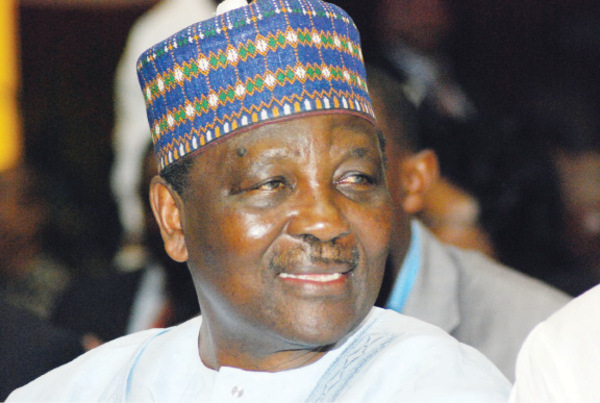Yakubu Gowon Reflects on Nigerian Civil War, Aburi Accord, and Historical Coups

General Yakubu Gowon, a former Nigerian Head of State, has recently offered unprecedented insights into pivotal moments of Nigeria's history, from coups to the civil war, in a series of candid interviews. His revelations shed new light on the complexities of leadership during turbulent times.
Gowon disclosed that he had prior knowledge of the 1975 coup that ultimately removed him from office, occurring on July 29 while he was attending an Organisation of African Unity (OAU) summit in Kampala, Uganda. Trusted sources alerted him to the impending overthrow by elements within his administration, including two close individuals, yet he chose not to act. He explained that he was "unbothered" and intensely focused on Nigeria’s broader international interests, particularly leading African nations towards decolonization. The coup, announced by Brigadier Joseph Garba in his absence, ended Gowon’s nine-year rule and installed General Murtala Mohammed. While military conspirators justified the coup by citing Gowon’s postponement of a promised return to civilian rule, perceived governmental inefficiency, and growing dissatisfaction, Gowon asserted that it came as no shock. He maintained that his administration’s delay in returning to civil rule was necessitated by internal divisions among military governors and the looming threat of political instability, which he feared could collapse the country, reminiscent of the pre-January 1966 crisis. Despite his ouster, Gowon harbors no bitterness, expressing pride in his service and bearing no grudges against those involved.
Another critical revelation concerns the collapse of the Aburi Accord, the last significant attempt to avert the Nigerian Civil War. Gowon stated that the Accord failed primarily due to an irreconcilable disagreement with Chukwuemeka Odumegwu Ojukwu, the Eastern Region leader, over the control of military forces in Nigeria’s regions. While initial dialogues at the January 1967 summit in Aburi, Ghana, were sincere, Ojukwu subsequently pushed for regional military autonomy, demanding that regional governors, including himself for the East, command their respective military zones. Gowon clarified that the federal delegation viewed the Aburi meeting as a forum for officers to agree on resolving domestic issues, not for constitutional restructuring or military devolution. A crucial misstep occurred upon his return from Aburi when Gowon fell ill and could not immediately respond to Ojukwu’s public announcements about the Accord, creating space for misunderstanding and unilateral declarations. He accused Ojukwu of making unauthorized statements and declining to attend a follow-up meeting in Benin convened to clarify the Accord’s terms, which Gowon believes could have prevented escalation. Gowon reiterated that while the government was willing to work in the “spirit of Aburi,” it would never concede national military control to regional governors or accept the possibility of secession. This fundamental impasse ultimately led to the Nigerian Civil War, which raged from July 1967 to January 1970, claiming over a million lives.
Gowon also addressed the tumultuous events surrounding the July 1966 counter-coup, which resulted in the assassination of then Head of State, General Johnson Aguiyi-Ironsi. He categorically denied any prior knowledge of this counter-coup. Although he sensed growing unrest within the military, he stated that he could not acquire clear intelligence or warn General Ironsi in time to avert the crisis. The counter-coup, predominantly staged by northern officers, was a bloody retaliation to the preceding January 1966 coup. Gowon, then Chief of Army Staff, recalled the widespread confusion and fear, expressing deep pain over Ironsi’s tragic demise. Following the counter-coup and a brief power vacuum, Gowon was unexpectedly appointed Head of State, facing the daunting task of preventing national disintegration and managing intense ethnic tensions. He admitted he was "not trained to govern" or "rule," but relied heavily on his home upbringing and British military training, particularly from the Staff College in Benin, which taught him how to "appreciate the situation" and deal with complex issues. He felt compelled to rise to the occasion in Nigeria's best interest.
Reflecting on post-civil war Nigeria, Gowon affirmed that the country is not merely surviving but "thriving" 55 years after the conflict. He robustly defended his post-war policy of "no victor, no vanquished," asserting its long-term positive impact on national unity and progress. He noted significant recovery and growth, particularly in the Eastern region, which suffered heavily during the war, emphasizing that development was never intentionally hindered. Gowon also defended his administration’s use of oil revenue during the oil boom, explaining that funds were primarily directed towards the "three Rs": reconstruction, rehabilitation, and reintegration, restoring damaged infrastructure, schools, and hospitals across affected areas. He dismissed the infamous 1975 "cement scandal" as a false allegation, attributing the port congestion to a global cement shortage and a glut of shipping, not excessive, unwarranted orders. Looking ahead, Gowon expressed his desire to be remembered as someone who deeply loves Nigeria and its people, and who consistently prays for the nation's continued prosperity, even making a light-hearted remark about making Nigeria better than America if potential visa bans were to be implemented. His recollections serve as a poignant reminder of Nigeria's complex political journey and the enduring importance of resilient leadership.










